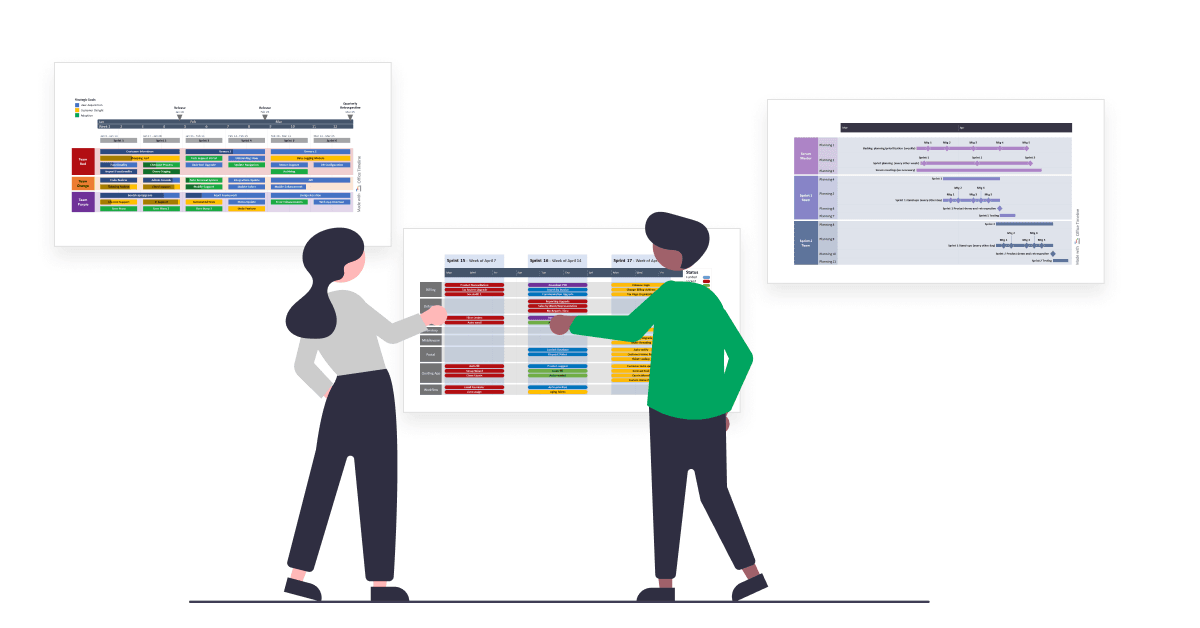Certification in Agile Methodology: A Guide to Agile Training

Agile project management has emerged as a prominent methodology, particularly in the dynamic software development industry. It revolves around an iterative and incremental approach to project execution, breaking projects into manageable components delivered in regular cycles or sprints. Agile project management hinges on collaboration, continuous improvement, and adaptability to address evolving requirements.
Under the Certification in Agile Methodology, various frameworks and methodologies have gained prominence. Some of the most widely embraced ones include Scrum, Kanban, Lean, and Extreme Programming (XP). Each framework comes with its unique set of principles, practices, and tools aimed at facilitating efficient and faster delivery of high-quality products and services.
Scrum
A highly favored agile framework is known for its adaptability across various project types, not limited to software development. It employs short iterations, usually spanning two to four weeks, with working software or product increments delivered at the end of each iteration. Collaboration, communication, and transparency among team members are central to Scrum’s philosophy.
Kanban
Another popular agile framework revolves around visualizing work, constraining work in progress, and optimizing workflow. Kanban involves mapping out work on a board, setting limits on work in progress, and persistently enhancing the flow of tasks. It is particularly beneficial for teams striving to enhance process efficiency and reduce waste.
Lean
An agile framework, emphasizes maximizing value while minimizing waste. It advocates continuous improvement, just-in-time delivery, and the elimination of non-value-added activities. Lean is well-suited for teams aiming to enhance product or service quality, reduce costs, and expedite delivery.
Extreme Programming (XP)
Another agile framework, underscores continuous testing, continuous integration, and continuous deployment. It operates in short cycles, usually lasting one to two weeks, with working software delivered at the end of each cycle. XP caters to teams focused on delivering high-quality, production-ready software.
Regardless of the chosen agile framework, certain core principles remain consistent:
- Customer Collaboration Over Contract Negotiation: Prioritizing collaboration with customers over rigid contractual agreements fosters a more customer-centric approach.
- Working Software or Product Over Comprehensive Documentation: The emphasis is on delivering functional products rather than exhaustive documentation.
- Responding to Change Over Following a Plan: Agile embraces change and adaptation, valuing flexibility in the face of evolving requirements.
- Individuals and Interactions Over Processes and Tools: Agile highlights the importance of human collaboration and teamwork.
Importance of Certification in Agile Methodology
An important aspect of Certification in Agile Methodology is the focus on collaboration and open communication among team members. Agile teams are often cross-functional and self-organizing, ensuring that team members collaborate effectively to plan and execute tasks. They also engage with stakeholders and customers to ensure that the end product or service aligns with their needs and expectations.
Another vital facet of Certification in Agile Methodology is the use of metrics to track progress and assess performance. Common metrics in agile project management include velocity, lead time, cycle time, and the ratio of stories committed vs. completed. These metrics empower teams to pinpoint areas for improvement, optimize processes, and enhance overall performance.
Certification in Agile Methodology Summary
Agile project management is a contemporary approach that champions collaboration, continuous enhancement, and adaptability. It encompasses various frameworks and methodologies, with shared principles that emphasize customer collaboration, working products, adaptability, and the value of individual contributions. Agile project management not only enhances project efficiency but also fosters a culture of continuous improvement and customer satisfaction.
Here at CourseMonster, we know how hard it may be to find the right time and funds for training. We provide effective training programs that enable you to select the training option that best meets the demands of your company.
For more information, please get in touch with one of our course advisers today or contact us at training@coursemonster.com




Comments ()